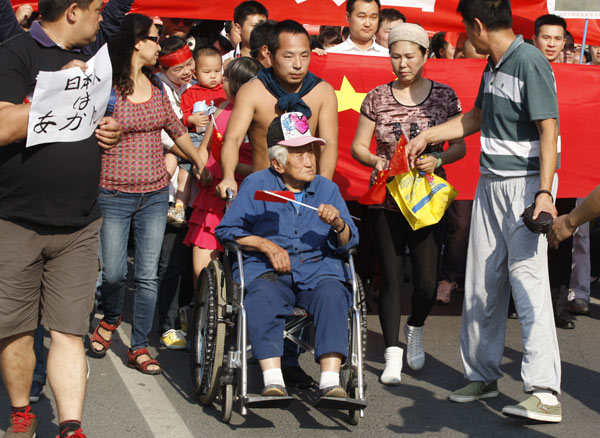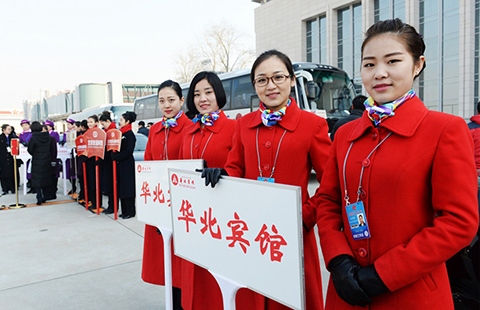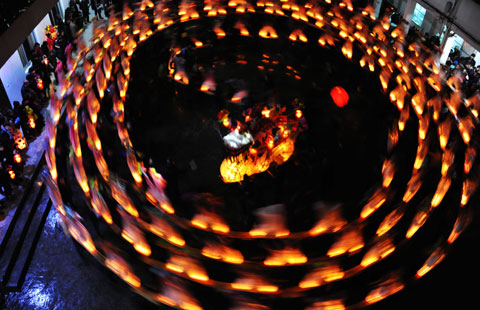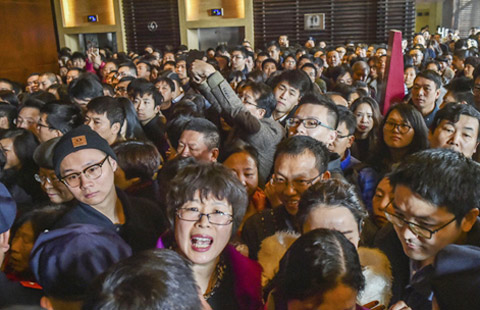

Residents in China's major cities took to the streets on Sunday to protest Japan's latest move in its illegal claim to the Diaoyu Islands, which have belonged to China for centuries.
 |
|
Residents protest against the Japanese government's "purchase" of China's Diaoyu Islands in front of the Japanese embassy in Beijing on Sunday. Zhu Xingxin / China Daily |
Concerned authorities have taken measures to crack down on illegal smash and grab incidents and guard foreigners and foreign organizations. Both on the streets and on the Internet, there have been mounting calls for "rational patriotic expression" amid the enthusiasm for asserting Chinese sovereignty.
In the wake of Saturday's protests, thousands of people in Beijing continued to gather in front of the Japanese embassy in China on Sunday to protest the Japanese government's decision to "purchase" the Diaoyu Islands from the "private owner".
Japan illegally seized the islands at the end of the Sino-Japanese War (1894-95). But key declarations following World War II legally returned the islands to China.
Streets surrounding the Japanese embassy in Beijing were tightly guarded by police over the weekend, and protesters paraded along the embassy's gate in groups with flags and banners.
Demonstrators chanted slogans including "return the Diaoyu Islands", with several throwing plastic water bottles into the embassy's yard, but there was no violence.
Few embassy staff left the building during the day, and the Japanese national flag in the yard has been removed.
In Shanghai, thousands of residents took to the streets in front of the Japanese Consulate General in the west of the city.
"We want our voices and discontent to be heard," said Liu Yan, a 38-year-old restaurant owner from Sichuan province who now lives in Shanghai.
Most of the Japanese-style restaurants, laundries and supermarkets in the foreigner-populated downtown area have been closed since Saturday when the protests started, and some have covered their signs that have Japanese characters with plastic sheeting.
Thousands of residents in Guangzhou, the capital of Guangdong province in southern China, rallied outside the city's Japanese Consulate General.
A large number of Japanese brand vehicles were damaged when a handful of protesters threw water bottles and stones at them as they drove down the road.
The Guangdong Provincial Public Security Department urged protesters on Sunday to abide by laws and regulations and rationally express their patriotic enthusiasm.
"Those who have illegally destroyed or damaged locals' properties will be informed of their legal responsibilities and economic compensation responsibilities," said a press release on its website.
In Xi'an, capital of Northwest China's Shaanxi province, officials sent short messages to residents on Sunday calling for restraint when expressing patriotism. Some smash and grab incidents were reported on Saturday.
Zhang Xiuyuan, a 21-year-old student at Chang'an University in Xi'an, told China Daily that she does not think those who smashed shop windows and damaged cars with Japanese trademarks were "patriots". Others agreed.
"I suggest the government and police take proper measures to crack down on crime in the name of 'patriotism'," said Li Yuemin, a 54-year-old teacher.
Celebrities took to online social networks to call for rational demonstrations of patriotism.
Peking University professor Kong Qingdong used his micro blog to warn that some people are trying to "alienate the demonstrating public and derail the patriotic campaigns".
"Wisdom is needed in the expression of patriotism," Xinhua News Agency said in a commentary. In its micro blog, Xinhua's Guangdong bureau also praised the tidy streets, saying only a little rubbish had been left behind by demonstrators.
Ma Lie in Xi'an and Huang Yuli in Shenzhen contributed to this story.













